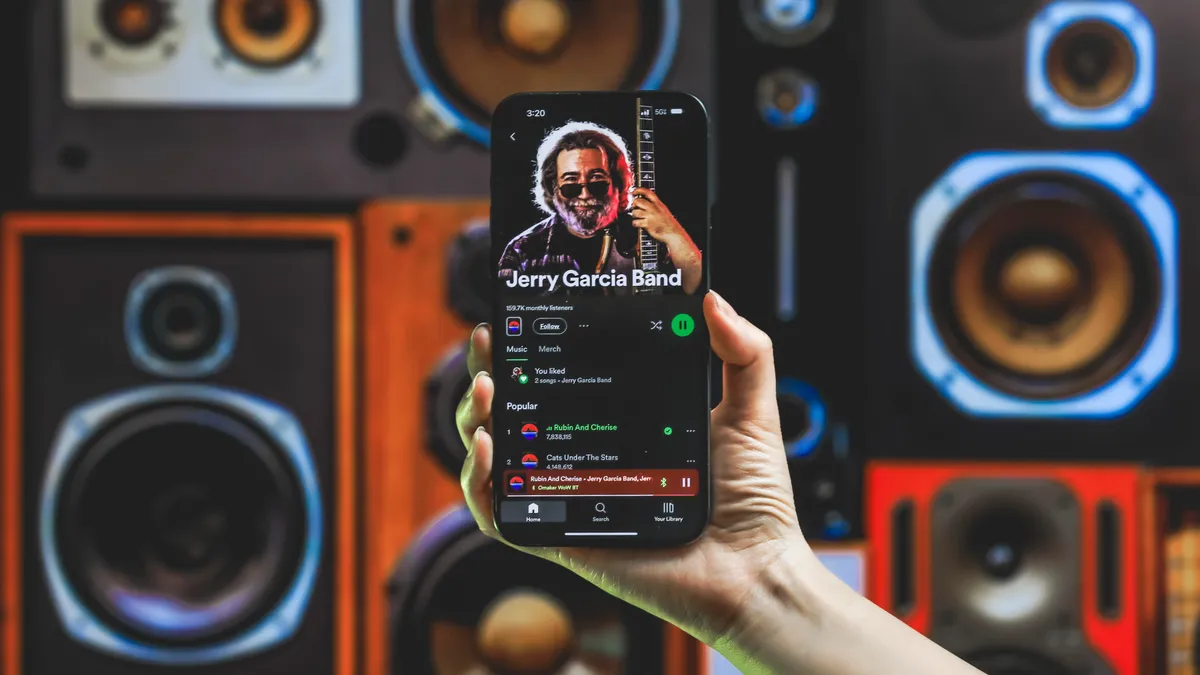Spotify is addressing the use of generative artificial intelligence in music streaming by introducing new guidelines designed to protect both artists and listeners. On Thursday, the company acknowledged the pros and cons of artificial intelligence. announce plans for a spam filter, disclosure alerts, and a way to combat identity theft.
“At its best, AI opens up incredible new possibilities for artists to make music and for listeners to discover it,” Spotify said on its website. “At worst, bad actors and content farms can use AI to confuse or mislead listeners, introduce ‘disasters’ into the ecosystem and prevent authentic artists from building their careers.”
To combat digital identity theft, Spotify creates a Identity Theft Policy This allows artists to take legal action against anyone who clones their voice and uploads content without permission. According to the policy, the streamer will delete uploaded content regardless of whether artificial intelligence or any other method was used in its creation. If an artist discovers a song or work on the platform with his voice or image, he (or someone on his behalf) can file a complaint.
This fall, Spotify will also launch a music spam filter to combat questionable music uploads that result in mass downloads, ripping and abuse of the royalty system. The company said the filter will be “a system that identifies and tracks video uploaders when they use these tactics, flags them and deters them.” To prevent legitimate downloads from being penalized, Spotify will distribute them carefully and monitor them throughout the process.
And new revelations about artificial intelligence are likely to provide important guidance. Spotify has partnered with DDEX and several media companies to display standardized AI information in the app’s music credits. As a listener, you’ll see information about the song that tells you if AI tools have been used for ‘AI-generated vocals, instrumentation or post-production’.
While Spotify has embraced artificial intelligence through features like DJ AI and playlist creation, this move comes after several incidents of artists being impersonated in music apps. In July, the streaming service removed a fake AI-generated song that had been uploaded to the profile of Blaze Foley, a country artist who died in 1989.
